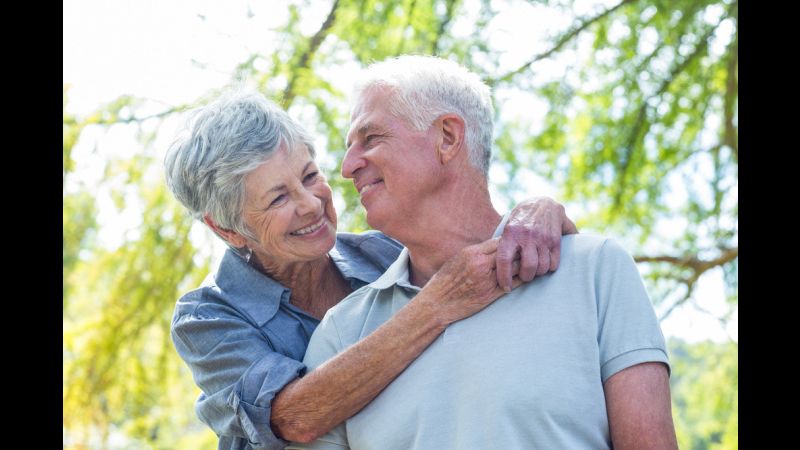These days it seems like there is so much to be anxious about. Questions like “Will I be able to pay for my children to go to college?,” “How will I pay my mortgage if I get laid off?,” and “Will I be able to retire at a decent age on my income?” are common for those in their 30’s and 40’s to ask themselves on a regular basis. Finances, the wellbeing of children, managing a home--there is a lot to feel stressed about throughout life.
So, how wonderful is it that scientists have found that getting older can actually lead to feeling happier?
And it’s no wonder that happiness in old age is more common than not. Many of the daily stressors that we face in the middle of our lives simply disappear as we age; mortgages are paid off, children are grown up and retirement becomes a worry of the past.
A Study On Happiness in Old Age
A study published recently in the Journal of Clinical Psychiatry found that contrary to popular belief, happiness increases with age. The researchers who published the study analyzed data collected from 1,546 individuals who ranged in age from 21 to 100 between 2010 and 2013. The participants were all interviewed on the phone and then followed up by filling out a comprehensive survey that asked pointed questions about their overall life satisfaction, levels of depression, anxiety and depression.
The results showed that not only were older people happier and more satisfied with life in general, they were also less likely than the younger participants to be anxious, depressed and stressed out.
“There’s this idea that old age is bad, it’s all gloom and doom and older people are usually depressed, grumpy and unhappy,” said one of the study’s lead authors, Dr. Dilip Jeste, a geriatric psychiatrist and the Director of the Center on Healthy Aging at the University of California, San Diego. “[But] brain studies show that the amygdala in older people responds less to stressful or negative images than in a younger person. We become wise. Peer pressure loses its sting. Better decision-making, more control of emotions, doing things that are not just for yourself, knowing oneself better, being more studious and yet more decisive.”
When asked to respond about exactly what makes people happy in old age, Dr. Jeste says the reasons are still unclear.
Finding Happiness
So, what makes people happy? While the researchers might not have found a clear-cut answer to that question in their data, Dr. Jeste does have a theory about why we feel more happiness in old age.
“It is conceivable that the changes in societal functioning because of progressive globalization, technology development, increased competition for higher education and for better paying jobs and changing roles of women in the society are likely to impact young women and men more than they might affect older people,” said Dr. Jeste. “Any relatively rapid changes tend to bring in stress for the people most affected.”
In other words, we feel more pressure to perform and succeed when we are younger. As we age, however, we are more at ease with our life accomplishments, we’ve successfully raised our children and we can enjoy everything that life has to offer in retirement.
If you still have not found happiness in old age, here are a few tips you can include in your daily life to feel happier:
- Think Positive Thoughts. Start by saying something positive when you wake up in the morning--it will set the tone for the rest of your day!
- Connect With Someone. Studies have shown that caring about other people can help increase your own happiness.
- Exercise More. Exercise has been proven to not only help boost your physical fitness, it can also help release happy-making endorphins in your brain.
- Adopt A Pet. Caring for a furry friend can increase your self-esteem and bring a higher sense of purpose and connection into your life.
Maintaining your health can also help you feel happier on a daily basis. Making small changes to your diet and exercise routine can have a big impact on your overall health and mental wellbeing. In addition, if you live alone making the investment in a Medical Guardian medical alert device can keep you connected to help should you ever need it. After all, happiness in old age seems to depend heavily on how connected you are, especially in times of need.


